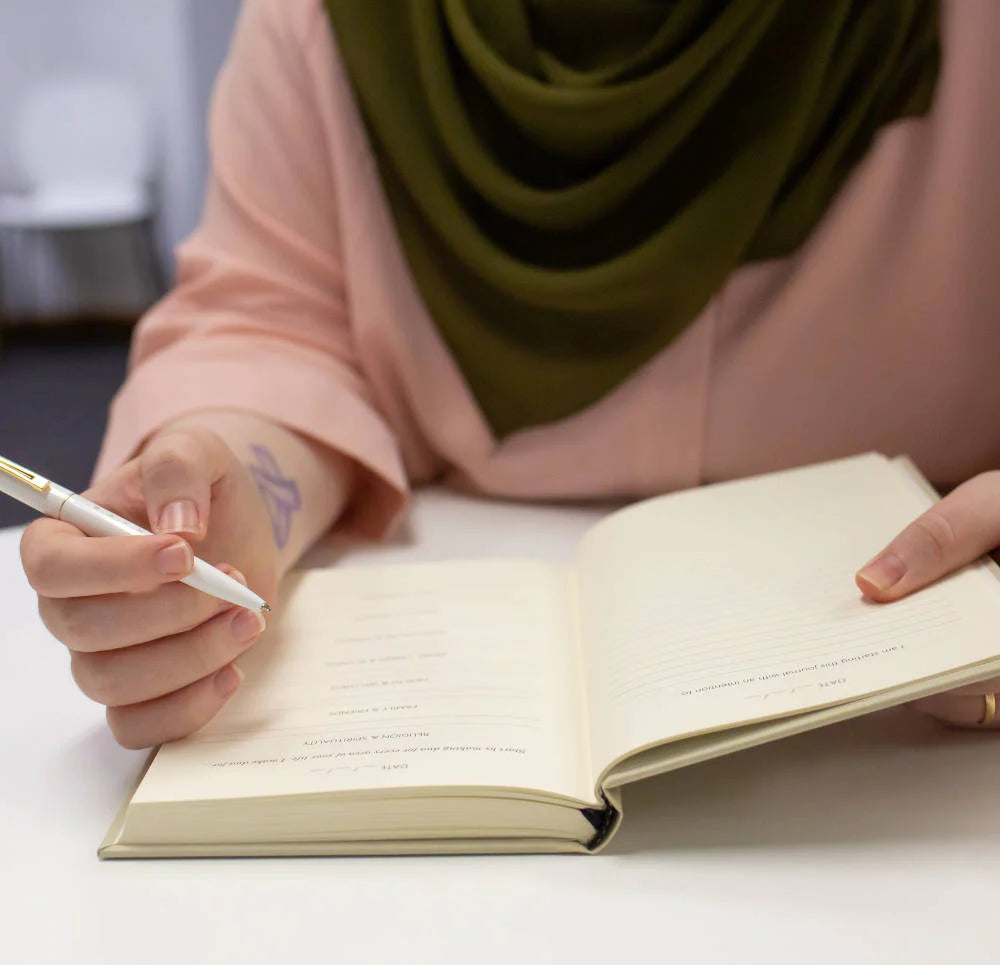The Benefits of Guided Journaling
We often speak about the benefits of reflection, and one great tool for creating a habit of reflection in your everyday life is a journal. The question is, what kind of journal will work best for you?
There are bullet journals, blank notebooks, journals that only require five minutes or one sentence a day, journals that ask you to reflect on specific topics - the choices can seem endless and overwhelming.
In this article we will to outline some of the benefits of using a guided journal over other methods of journaling.
What is a guided journal?
A guided journal is a journal that focuses on specific themes or areas of your life and asks specific questions for you to reflect upon. The Dua Journal is a great example of a guided journal. In each journal we focus on a specific theme and each reflection page contains specific prompts and space for you to reflect on.
Journal prompts and lists of journal topics can also serve as types of guided journaling. These usually consist of a question or topic that you can write freely about in your own notebook.
On the other hand, freestyle journaling is usually done in a blank notebook without outside prompts. This can look like writing down what happened during your day (like a diary entry), making different types of lists, or a practice like morning pages, among other things.
While freestyle journaling can be beneficial in its own way, guided journaling provides some specific benefits, whether for a beginner to journaling or seasoned journalers.
Easy introduction for journaling beginners
Using a guided journal is an easy way to ease into the practice of reflective journaling. It can be intimidating to stare at a blank page when you don't have much experience with journaling, and using a guided journal takes away that sense of overwhelm.
To start, all you have to do is open to the first page and begin answering the prompts that are already there. From there, you can branch out in your reflections and, as you get more used to the practice, begin to try out other styles of journaling.
Deeper/Out of the Box Reflection
Guided journals can provide questions or reflection topics that you yourself may not have thought of on your own. In this way, using a guided journal can enrich and diversify your reflective journaling practice and provide deeper insights than using only a freestyle journal method.
Clarity on specific topics or issues
Using a guided journal can help provide you with clarity on a specific topic or issue that you are having. For example, if you are struggling in your relationship with the Quran, you can choose a guided Quran journal to help you build that relationship. If you struggle with goal setting, you can choose a guided journal that focuses specifically on personal development to help you create a practice of goal setting.
Accountability
Most guided journals include a specific timeline for how often they should be filled out, for example, daily, weekly, over the course of a month or a year. This creates a sense of accountability in your journaling practice, helping you to stay on track and build consistency.
The Dua Journal has open-dated pages, providing accountability without the pressure of perfectionism, or the "all or nothing" mentality. Open-dated pages mean that you can choose how to fit your journal into your unique schedule, and even if you fall out of the habit, you can pick it right up where you last left off.
Questions? Ideas?
If you have any questions about guided journaling or how it works, please feel free to leave us a comment under this post, or fill out our contact form! We love to hear from you with your thoughts and ideas, and we are always here to help with any questions you may have.

